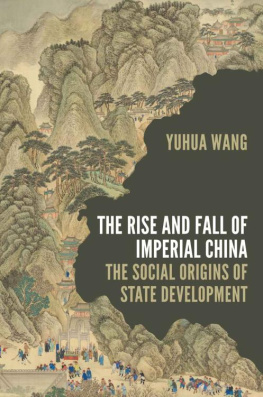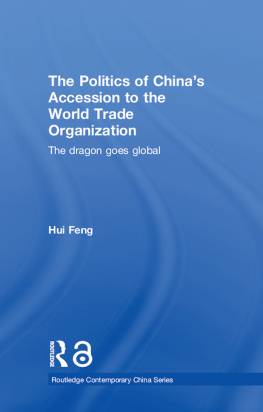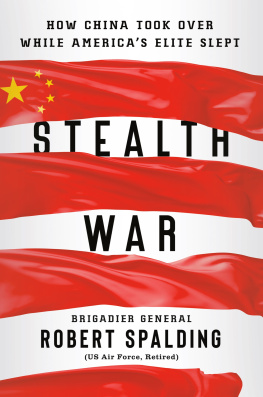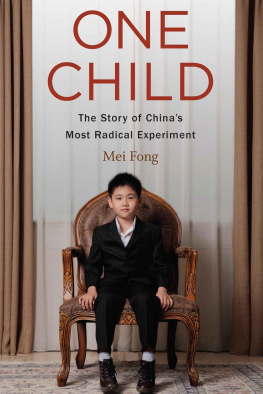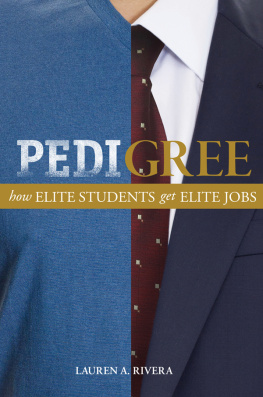Stanford University Press
Stanford, California
2016 by the Board of Trustees of the Leland Stanford Junior University. All rights reserved.
No part of this book may be reproduced or transmitted in any form or by any means, electronic or mechanical, including photocopying and recording, or in any information storage or retrieval system without the prior written permission of Stanford University Press.
Printed in the United States of America on acid-free, archival-quality paper
Library of Congress Cataloging-in-Publication Data
Bregnbaek, Susanne, author.
Fragile elite : the dilemmas of Chinas top university students / Susanne Bregnbaek.
pages cm.(Anthropology of policy)
Includes bibliographical references and index.
ISBN 978-0-8047-9607-1 (cloth : alk. paper)ISBN 978-0-8047-9778-8 (pbk. : alk. paper)
1. College studentsChinaBeijingSocial conditions. 2. College studentsFamily relationshipsChinaBeijing. 3. Education, HigherSocial aspectsChinaBeijing. 4. Beijing da xueStudents. 5. Qing hua da xue (Beijing, China)Students. I. Title.
LA1133.7.B74 2016
378.51'56dc23
2015017617
ISBN 978-0-8047-9779-5 (electronic)
Typeset by Bruce Lundquist in 10.25/15 Brill
Fragile Elite
The Dilemmas of Chinas Top University Students
Susanne Bregnbk
Stanford University Press
Stanford, California
Anthropology of Policy
Cris Shore and Susan Wright, editors
For Benjamin and Peter
Contents
Acknowledgments
THIS BOOK IS THE RESULT of many conversations with friends, family, and colleagues. I am particularly indebted to my Chinese interlocutors, who shared their lives with me and whom I can thank only anonymously. I also warmly wish to thank Hanne Cecilie Berthelsen-Kruse, Edel Bregnbk, Mogens Bregnbk, Pernille Brix, Tine Gammeltoft, Teresa Kuan, Claus A. Lassen, Francine Lorimer, Cecilia Milwertz, Lars Mllenbak-Bregnbk, Nanna Mullamilla, Sissel Lea Nielsen, Michael Puett, Saren, Charles Stafford, Marie Hgh Thgersen, Ulla Vanges-Schmitt, Ulrika Villar, and Susan Whyte for different kinds of important support. For tremendous enthusiasm about my book project, I thank Pablo Selaya Elio with love. For feedback on draft versions, I thank my friends and colleagues Ann Benwell, Mikkel Bunkenborg, Morten Hulvej, Nanna Jordt Jrgensen, Anja Kublitz, Hans Lucht, Bjarke Oxlund, Lotte Buch Segal, Kasper Tang-Vangkilde, Stig Thgersen, Henrik Vigh, and Louise Vogel-Kielgast. I am grateful to the Stanford University Press editors, Sue Wright, Cris Shore, and Michelle Lipinski, for taking an interest in my work. I owe a special debt of gratitude to Michael Jackson for intellectual guidance, support, and friendship. Finally, I thank the Danish Research Council for the Humanities (FKK) and the Asian Dynamics Initiative (ADI) for funding my research.
Introduction
A FEW MONTHS INTO MY FIELDWORK IN CHINA,
Beijing University reported the suicide as an accident. Yet, despite the official silence, students talked about the incident and speculated about the causes. Some people blamed the cutthroat competitiveness of the educational system for the frequent incidents of suicide. Others saw the suicide of elite students as highlighting the flaws of the pampered generation of little emperors and empresses who have been spoiled within the family and are now unable to cope with the vicissitudes of real life. How could she do this to her parents? many people wondered. According to one rumor, this girl had left a suicide note for her parents apologizing that she could not live up to their expectations. One story had it that she was about to graduate, but was being bypassed in job interviews because she lacked the kinds of connections that could open doors. Others felt that the real reason behind the suicide had to be a family conflict or a broken love affair. Some students quietly remarked that suicide was really the only way to escape from the pressure.
The suicide and the students responses to it indicate what is at stake for university students in Beijing and point to critical issues of intergenerational continuity and discontinuity in a nation undergoing radical transformation.
During the last twenty years China has changed from being a poor agricultural country to being a country with the worlds second-largest economy. When Deng Xiaoping initiated the period of Reform and Opening Up, it was assumed that massive investments in higher education and the creation of a qualified elite would guarantee China a place in the first world (Fong 2004). My ethnography explores the implications of the new globally competitive knowledge economya term coined by the Organisation for Economic Co-operation and Development (OECD) to designate the divide between hands (populations doing dirty and dangerous manual labor) and heads (populations specializing in knowledge and research). With Chinas rise to power, this division was destabilized, and the Chinese government now strives to make China prosper not only as the factory of the world but also as an innovative society. The everyday lives of Chinese have changed utterly, especially in urban areas, and so too have the kinds of lives people aspire to lead, as well as what defines a life worth living.
These societal transformations have also profoundly changed the urban landscape. I vividly remember riding my bicycle to school when I was living in Beijing as a child during the mid-1980s. Having left the walled and gated diplomatic compound, I joined the mass of people dressed mostly in blue or gray Mao-style attire who crowded the wide bicycle lanes, following the slow pace of life. In the winter, engulfed in the chiming of bicycle bells, I would carefully zigzag my way between frozen gobs of spit. I passed a gray hutong (traditional courtyard) area and then followed a straight tree-lined road, under a canopy of naked branches. Sometimes my way was blocked by horse carriages, truckloads of vegetables, or bicycle vendors selling baked potatoes or tiny sugar-coated apples on long sticks. Chubby toddlers dressed in thick, colorful fabrics stuck out in the grayness of the urban scenery. Parents would often poke their children to make them notice the foreign child passing by, and students would sometimes follow me in their eagerness to practice a few English phrases. I would pass a small park in which groups of old men carrying birdcages gathered to exercise their birds, and occasionally little old women with small bound feet would pass by, each walking cautiously and supported by a cane.
During my fieldwork in Beijing in 2005 and 2007, I sometimes walked this same stretch, and I was always struck by the uncanny experience of familiarity and strangeness. The familiar road lined with trees was still there. Advertisements and kitsch caught my eye, along with the busy vendors insistently trying to attract customers. Chinese as well as foreign people drank coffee and cocktails at the sidewalk cafs, and beggars (people from the countryside or elderly people in dilapidated Mao suits) roamed the street. Their ghostly presence seemed to be an indication that time was out of joint. Taxis and cars noisily made their way forward as shoppers jumped in and out of them, heading in different directions. A multi-story shopping mall, Pacific Century Place, overlooked the space of the old park, in which public exercise machines had been placed in the shade of the trees.
In 2012, when I last returned for fieldwork, yet another transformation had taken place as the trendy shopping mall and restaurant area called the Village had replaced the old


